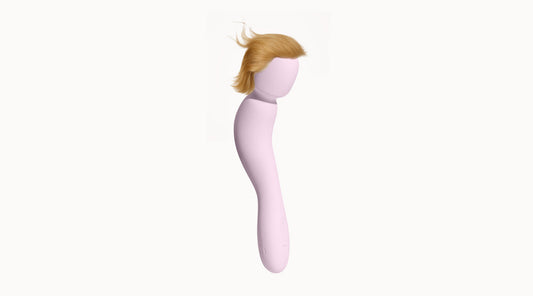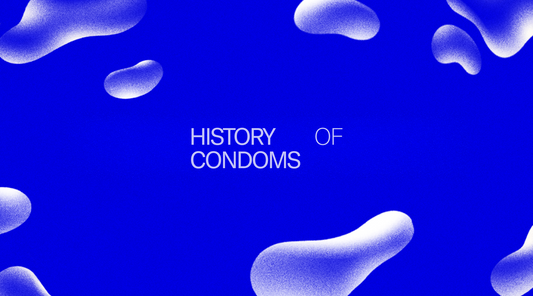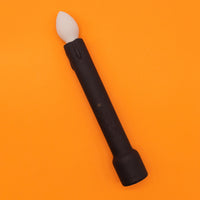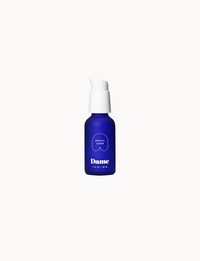Alexandra Fine, Credentialed Sexologist, M. Psych | Written by Dame
What Constitutes Sexual Pleasure? | How the Body Provides Sexual Pleasure | How the Brain Provides Sexual Pleasure | Potential Impediments | The Benefits
What is sexual pleasure? Like “beauty,” it’s in the mind of the beholder. Or more accurately, it’s in the mind of the person experiencing it.
With the possible exception of those who identify as asexual – a group estimated to be composed of less than one percent of the population – everyone desires sexual pleasure at some point. Those with a high libido are likely to seek it more often, while those with low sex drives may not be as motivated to enjoy it.
But people of all sexual orientations and gender identities, the young and the old, those who want relationships and those who don’t – share a desire for sexual pleasure.
What they often don’t share, however, is an exact definition of what constitutes sexual pleasure for them.
It’s a difficult thing to quantify or put into words.
One attempt involved a “Sexual Pleasure Scale” published in the Journal of Sexual Medicine, which might be useful for sexual health care professionals but doesn’t provide much insight for laymen.
Other attempts, including one conducted by noted sexologist Debby Herbenick (with funding from the website OMGYes) and published in the Journal of Sex and Marital Therapy, simply tabulated respondents’ answers on a questionnaire to determine the relative levels of pleasure they experienced during clitoral stimulation and vaginal intercourse.
Those clinical answers don’t really help us much, so that still leaves us with the big question: exactly what is sexual pleasure? In the spirit of this subject – let’s explore.
What Constitutes Sexual Pleasure?
We’ll start with the most important fact to remember, courtesy of the American Sexual Health Association: “there isn’t a ‘right way’ to experience sexual pleasure.”
With that in mind, here’s just a partial list of sexual activities that can provide sexual pleasure to those who enjoy them. (We shouldn’t have to say it, but all of these options are only acceptable with consent.)
- Fantasizing
- Sexually-suggestive conversation
- Sexting
- Kissing or other types of “making out”
- Rubbing and fondling
- Video chat or phone sex
- Watching porn or reading erotica
- Role-playing
- Masturbation and using sex toys, either alone or during mutual masturbation
- Oral sex
- Penetrative sex
- Anal sex
- Fetish or BDSM play
Needless to say, that list is far from complete. Some people might derive immense sexual stimulation and pleasure from those activities, but others would be uninterested in even trying them. And there’s an important distinction to understand: some people might engage in one or more of those activities in order to provide a partner with sexual pleasure, but would personally experience no sexual pleasure from them.
Just as importantly, there’s absolutely nothing with seeking and enjoying sexual pleasure as long all parties consent and no one is hurt in any way (physically or emotionally). The World Congress of Sexual Health may have said it best, in its 2019 Declaration on Sexual Pleasure:
“Access to sexual pleasure is part of human experience and subjective well-being; sexual pleasure is a fundamental part of sexual rights as a matter of human rights; sexual pleasure includes the possibility of diverse sexual experiences.”
In short, sexual pleasure is a good thing, not something that should be avoided or something that induces guilt – regardless of what type of legal and consensual activity creates that pleasure.
Most people, however, consider sexual pleasure to be sensations or emotions that result from physical contact. And the majority of those folks are likely to equate sexual pleasure with orgasm.
So let’s figure out what causes the pleasure in “sexual pleasure.” There are actually two aspects to consider: how the body reacts to sexual stimulation, and how the brain reacts.
How the Body Provides Sexual Pleasure
For almost sixty years, the “gold standard” used to describe the body’s responses during sexual activity has been Masters and Johnson’s four-stage sexual response cycle. Sex researchers and sexologists who later critiqued the duo’s seminal work have argued with its structure, but the actual physical responses Masters and Johnson described have gone unchallenged.
The first two stages in the sexual response cycle, excitement and plateau, primarily describe how the body responds to sexual desire and sexual arousal, and how it prepares for climax. Increased blood flow causes penile erection or swelling of the clitoris and vagina. The heart beats faster, the rate of respiration increases, lubrication begins, and muscles tense. All of those responses may cause sexual pleasure in some, but largely because of arousal and the buildup of sexual tension and anticipation, not literal physical enjoyment.
The payoff comes, of course, in the orgasm phase. At the moment of climax, penis-havers experience the rhythmic, intense muscle contractions at the base of the penis which cause ejaculation. Vulva-havers experience vaginal, uterine and pelvic floor contractions. All are responsible for the sudden and pleasurable release of sexual tension experienced during climax – and for most people, that’s what creates the pleasure we associate with “sexual pleasure.”
The afterglow of good sex (whether that sexual activity involves vaginal penetration, anal penetration, masturbation or another type of stimulation) – which Masters and Johnson called the resolution stage – may also provide sexual satisfaction for some. Muscles contract, the body relaxes, and a sense of warmth and well-being is common.
That last bit of sexual pleasure, however, should be credited more to the brain than the body.
How the Brain Provides Sexual Pleasure
The nervous system and brain are constantly communicating, no matter what we’re doing. Naturally, that communication doesn’t stop during sexual activity.
Much of the sexual pleasure we experience is due to activity in specific parts of the brain like the genital sensory cortex, the motor areas and the thalamus. The first two receive signals indicating sexual stimulation and the physical actions involved in sexual behaviors; the thalamus associates those signals with existing fantasies and memories, to enhance arousal and sensations.
Different parts of the brain, meanwhile, are engaged in other crucial activities. They stimulate release of the hormones and neurotransmitters that provide “emotional sexual pleasure.” Oxytocin helps produce muscle contractions and orgasm during sex, but as the “so-called love hormone,” it’s even more responsible for the feelings of post-coital intimacy and well-being.
The brain also floods the body with other neurotransmitters like dopamine (the “feel good hormone”) and serotonin (the “happy chemical”) which are largely responsible for the pleasure people feel as soon as they’ve climaxed.
It’s a fascinating dance between body and brain, but they work in tandem to ensure that sexual pleasure accompanies a healthy sex life.
Potential Impediments to Sexual Pleasure
“Healthy sex life” was the key phrase in the last sentence, and “healthy” was the key word.
There are many factors that can interfere with sexual pleasure. Sexual dysfunction, or mental health issues like stress, anxiety, poor self-image or guilt can certainly impede sexual function and the satisfaction that would be expected from a sexual experience. And a “women’s health” issue known as FSAID (female sexual interest/arousal disorder) is a diagnosable and treatable mental health issue that can prevent vulva-havers from responding to sexual stimulation. Mental health professionals can help with many of those problems.
Diseases and conditions like diabetes and kidney failure often interfere with sexual function, affecting the sexual pleasure that patients may be able to experience. Advancing age, drug abuse and overuse of alcohol are other factors which can affect the sexual pleasure that people can feel. And some prescription medications, like the SSRIs often used to treat depression, are known to trigger sexual dysfunctions that can interfere with sexual pleasure. Medical professionals should be consulted.
Relationship problems between long-time sexual partners often lead to difficulties in the bedroom as well as in everyday life. That can take the joy out of sex – and joyless sex is unlikely to produce sexual pleasure. Better communication, both about the source(s) of contention and sexual activity, is one way to address this issue; marital or relationship counseling should also be considered.
Finally, failure to use safer sex practices can result in sexually transmitted diseases (STDs) or infections (STIs). Among the possible side effects, of course, is pain during sex – certain to be a major impediment to sexual pleasure, assuming that sex is even possible or advisable under those circumstances. Treatment should be sought from a doctor, a reproductive health center or a public health facility.
The Benefits of Pleasurable Sex
Research has shown that a healthy sex life provides a number of impressive health benefits.
Among them: higher levels of immunity against germs and viruses; lower blood pressure; a stronger pelvic floor which assists with bladder control; lower risks of cardiovascular disease and death; a lower risk of prostate cancer in penis-havers; better sleep; less stress; and pain control thanks to the release of key hormones.
The best benefit of all, though, is additional sexual pleasure. Research shows that great sex leads to a healthier libido, which leads to more great sex – and even more sexual pleasure. To put it more simply, sexual pleasure is the gift from your body and brain that keeps on giving.














































